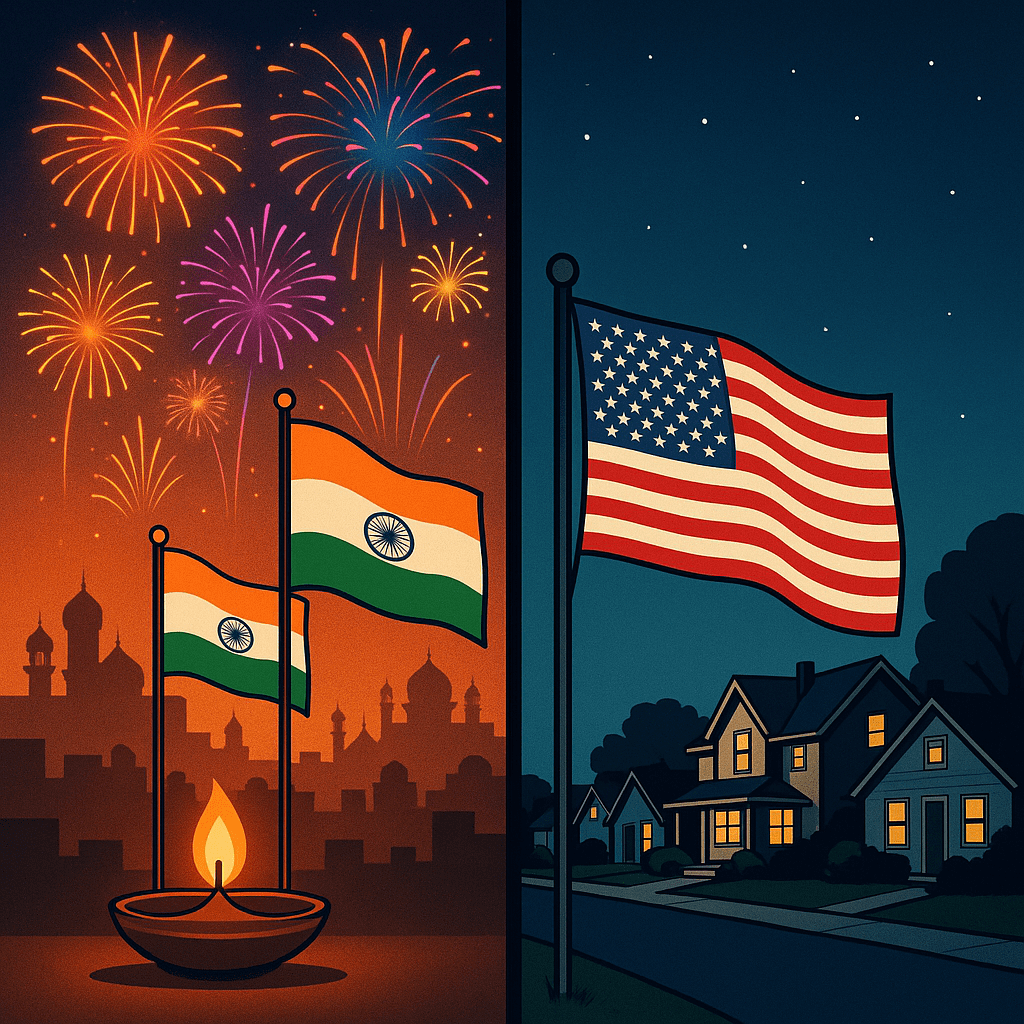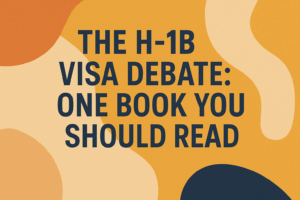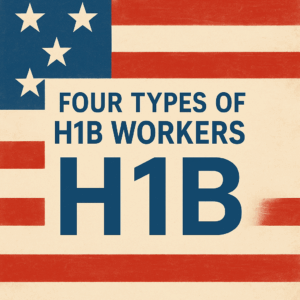Introduction: When Pride Becomes a Problem
Every year, around Diwali, headlines surface across the U.S.—“Illegal Fireworks Cause Chaos,” “Neighborhood Disturbances,” “Cultural Events Turn Violent.”
What should be a moment of joy and light often turns into controversy, leaving many Americans confused and frustrated.
Behind these incidents lies a deeper tension. The Indian diaspora is growing rapidly, yet so is the perception that some members are re-creating “mini Indias” instead of integrating into their new communities. For many locals, the symbolism of fireworks has come to represent something larger—a refusal to adapt.
The Green Card Paradox
The U.S. green card system, designed to reward skill and merit, has evolved into a maze of loopholes and luck. Ironically, those who best represent the spirit of innovation—the assimilated, hardworking, bridge-building professionals—often wait decades in the backlog.
Meanwhile, others seem to glide through faster by mastering the art of paperwork, networking, and self-promotion, not necessarily excellence. These are not “bad” people, but they embody a mindset that treats immigration as a transaction, not a transformation.
Once settled, many of them become the loudest voices of cultural nostalgia—celebrating India loudly while disregarding American social norms. They hold onto every aspect of home except accountability.
Culture vs. Conduct
There’s nothing wrong with loving your homeland. Every immigrant carries memories, language, and festivals as pieces of identity. But there’s a fine line between celebrating culture and exporting behavior that doesn’t translate well abroad.
Lighting diyas on Diwali? Beautiful.
Hosting loud firework parties in dense neighborhoods at midnight? Disrespectful.
Sharing Indian food and art with friends? Admirable.
Mocking local traditions or refusing to mingle? Alienating.
Assimilation doesn’t mean losing your roots—it means growing new ones without choking the soil that welcomes you. The “new India” some immigrants try to build in America often mirrors the same flaws they once wished to escape: classism, favoritism, and disregard for civic order.
Why Resentment Builds
Across forums, social media threads, and workplace chatter, a quiet frustration brews. To many Americans—and even to immigrants from other nations—the loudest Indians are drowning out the best ones.
A few visible patterns contribute:
-
Insularity: Social circles limited to co-ethnics, even after decades abroad.
-
Entitlement: Expecting special treatment because “we run the tech industry.”
-
Cultural Overreach: Treating neighborhoods as extensions of home, not shared spaces.
-
Hypocrisy: Praising India’s greatness while refusing to live there.
This resentment isn’t rooted in racism alone—it’s cultural fatigue. When assimilation is replaced by arrogance, and pride by projection, even friendly neighbors begin to withdraw.
The Role of Identity Insecurity
Many immigrants live in an identity limbo: too American for their homeland, too Indian for their new one. Instead of confronting this discomfort, they overcompensate with nostalgia—flying bigger flags, making louder noise, and building cultural bubbles.
The result? Communities that feel exclusive, not inclusive. For second-generation kids, it creates confusion. For neighbors, resentment. For policymakers, skepticism.
If You Love India—Prove It the Right Way
True patriotism isn’t about exporting your homeland’s chaos to foreign soil; it’s about improving it where it began. If you genuinely believe India is the best place on Earth, perhaps the most patriotic act is to return, invest, and rebuild it—not to preach its glory from 8,000 miles away while benefiting from another country’s system.
Loving two nations isn’t betrayal—it’s maturity. But love without respect turns toxic fast.
The True Contributors
Thankfully, there’s another face of the Indian diaspora—the quiet contributors. They pay taxes, volunteer locally, mentor American peers, and raise children who are proud of their roots yet respectful of their surroundings.
They’re the ones building a reputation worth admiring—balancing Diwali lights with community rules, pride with humility, and success with gratitude. These immigrants are not trying to build “New India.” They’re helping build a better America, one that benefits from the best of both worlds.
Conclusion: Pride with Perspective
It’s time for honest reflection. The growing dislike toward certain Indian communities isn’t entirely unfounded, nor is it entirely fair. It’s a symptom of imbalance—a struggle between identity and integration.
Culture should unite, not divide. Patriotism should inspire, not intimidate.
The world doesn’t hate Indians—it grows tired of arrogance disguised as pride.
If we want genuine respect abroad, we must first show it where we live. The fireworks will then truly symbolize celebration—not defiance.










